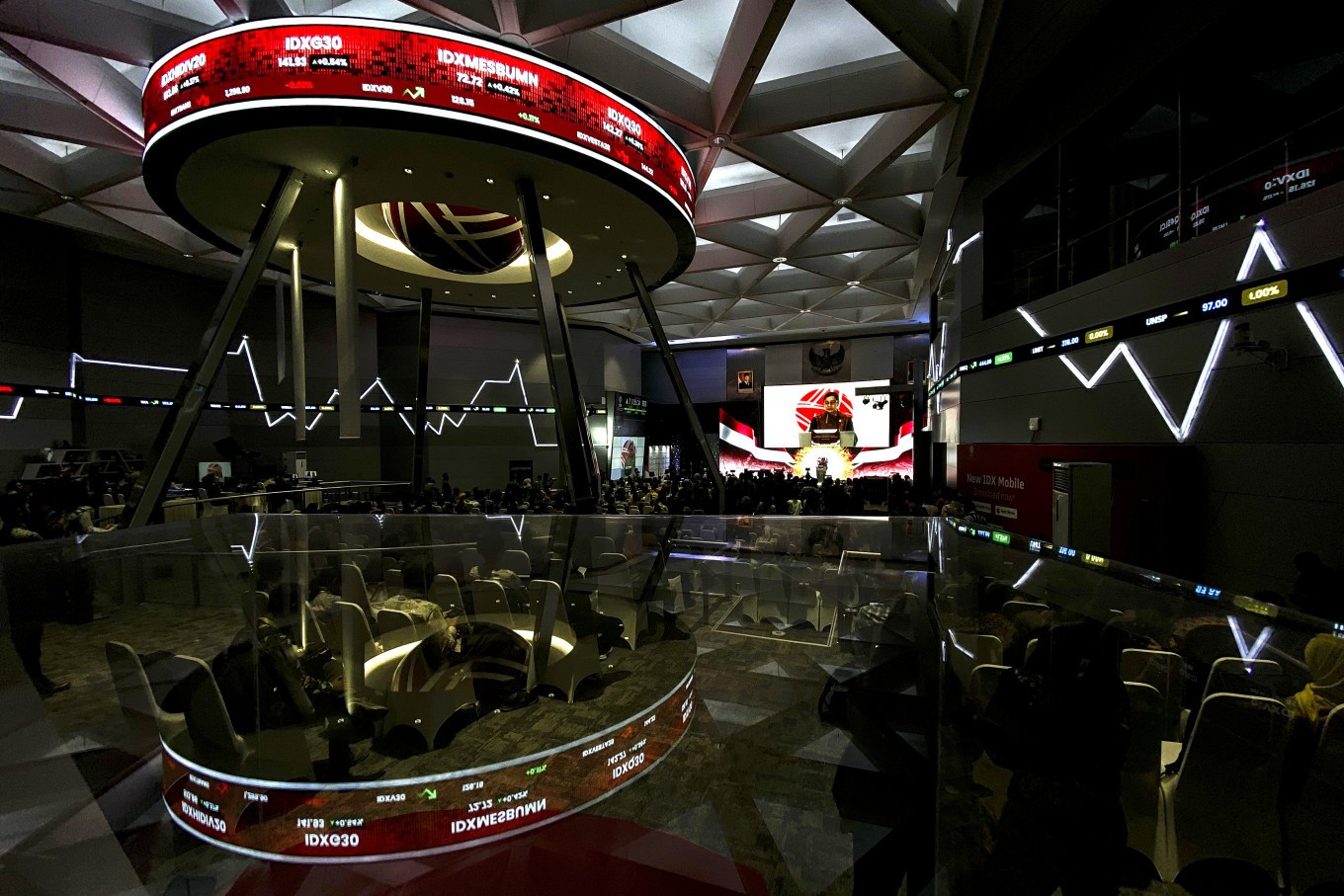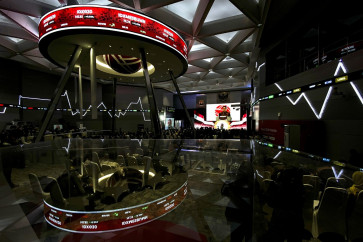Popular Reads
Top Results
Can't find what you're looking for?
View all search resultsPopular Reads
Top Results
Can't find what you're looking for?
View all search resultsAnalysis: RI markets buoyant on US tariff reprieve, energy deals in sight
Change text size
Gift Premium Articles
to Anyone
T
he Indonesian stock market experienced a modest but meaningful recovery this week, buoyed by an announcement from United States President Donald Trump that the implementation of his import tariffs would be delayed for the next 90 days for most countries, excluding China, Mexico and Canada. This pause offered global markets a reprieve from an escalation in trade tensions, and Indonesia was no exception.
Just before Trump’s announcement on April 9, the Jakarta Composite Index (JCI) dropped to a low of 5,967. As news of the tariff pause broke and market sentiment began to shift, the JCI had rebounded by the following Monday (April 14) to 6,445 up 8 percent. Improved investor outlook was also reflected in trading volumes that surged to 15 billion shares on April 21, up from 11.8 billion recorded on April 11 and 12.2 billion at the end of March.
This upward trend in market confidence is largely attributed to growing optimism that Washington might recalibrate its tariff policy during the 90-day pause. The US is currently facing significant economic strain, not just in its financial markets but also in the real economy. Trump's tariff policy, which aims to revitalize domestic industries and bring jobs back to the country, has run into practical roadblocks. While its objective is to redirect US capital away from foreign investments and back into domestic production, the reality is that many sectors of the US industrial base are ill-equipped to absorb this influx of capital efficiently, potentially leading to significant waste.
Building the US’ industrial capacity is not something that can be accomplished overnight. Recognizing this, many analysts believe that Trump's current approach of exempting select countries while maintaining pressure on key competitor China and major trade partners like Canada is a compromise strategy, allowing the US to maintain some continuity in international trade as it attempts to reconfigure the economic architecture. Unless there is a sudden shift in the condition of the US economy, this blanket tariff policy is widely expected to undergo some revision in the months ahead.
From Indonesia’s standpoint, the current situation presents a valuable opening. As the US has become increasingly entangled in trade spats, particularly with China and the European Union, its export options have narrowed. Retaliatory tariffs from these major trading partners have restricted US access to some of its largest markets and opened a window for countries like Indonesia to fill the gap.
In response, the government is preparing a strategic proposal to increase its imports of US energy commodities, particularly crude oil and liquefied petroleum gas (LPG). According to Energy and Mineral Resources Minister Bahlil Lahadalia, Indonesia is looking to import up to US$10 billion worth of these commodities, or roughly Rp 168 trillion. According to the ESDM's estimates, they expect to increase the portion of US crude oil from 4 percent of total crude oil imports to 40 percent.
The government is currently evaluating the logistical and financial implications of such a significant change. As a basis for comparison, Indonesia's imports from the US throughout 2024 were only $430.87 million for crude oil and $3.79 billion for LPG. Currently, the US supplies around 54 percent of Indonesia's LPG imports, so the new import increase policy would be primarily for crude oil.



















